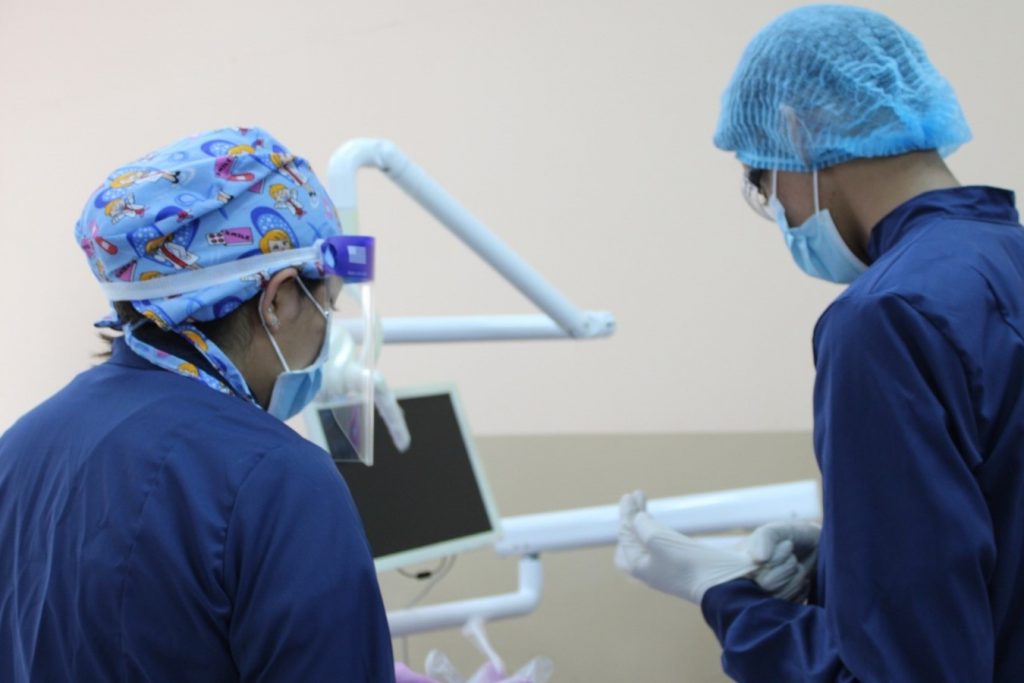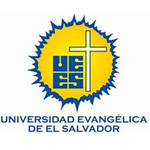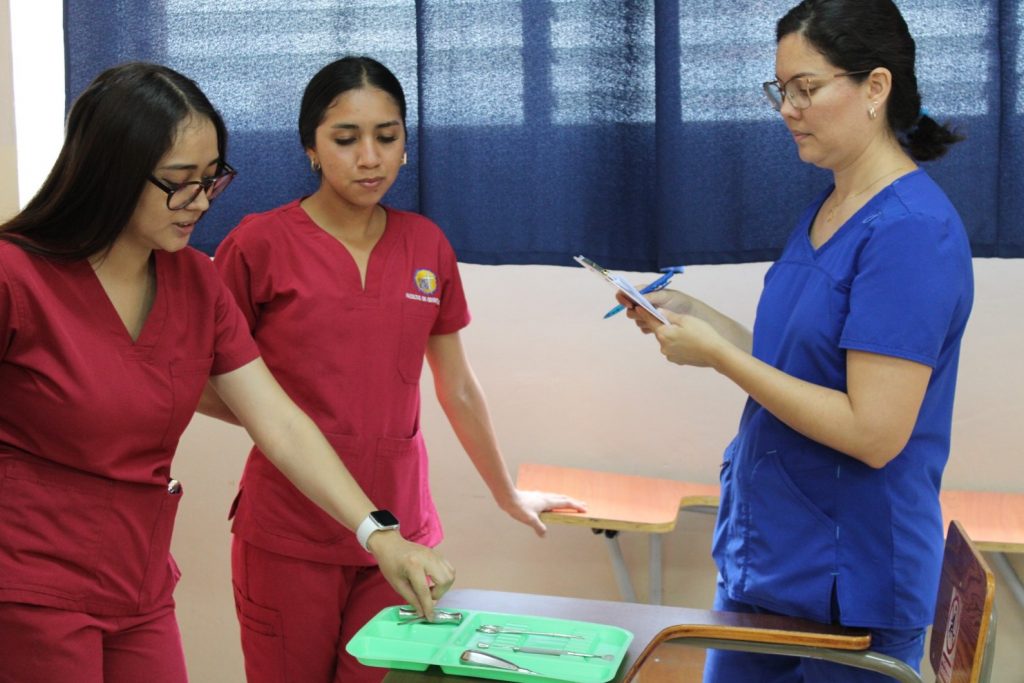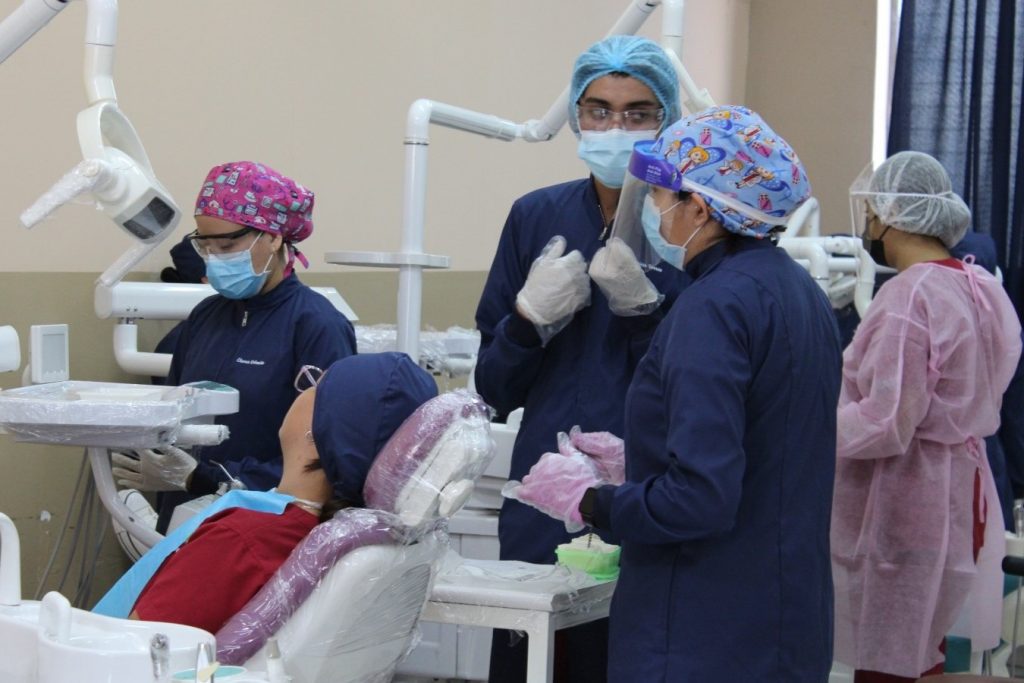UNIVERSIDAD EVANGÉLICA DE EL SALVADOR
TAO PRACTICAL EVALUATION EXPERIENCE CYCLE I-2025


Within the framework of strengthening learning-oriented pedagogical strategies, the Dental Assisting Technician career, with the support of the Teaching and Learning Center (CEA), developed a practical evaluation experience in a simulated environment during Cycle I – 2025, with the active participation of a total of 70 students.
The main objective of the exercise was to evaluate the technical and procedural mastery of the students in three fundamental subjects of the curriculum: Biosafety, Dental Equipment and Instruments I, and Dental Assisting I. The laboratory was structured in three clinical simulation stations. For this purpose, a laboratory structured in three clinical simulation stations was designed.
In the subject Dental Assisting I, the teacher in charge of the course, Dr. Melvin Urrutia, performed an intraoral clinical evaluation of a patient, narrating to the students the findings in the dental and periodontal structures so that they could fill out the odontogram using standard dental nomenclature and symbology.
In the Biosafety course, students had to demonstrate the correct procedure for the placement and removal of Personal Protective Equipment, the proper installation of isolation barriers in the dental chair, according to current protocols in clinical biosafety, this practice was evaluated by Dr. Alejandra Lopez.
Finally, in the subject Dental Equipment and Instruments I, under the supervision of Dr. Gloria Meléndez, students were evaluated on their ability to correctly identify a series of dental instruments, associating them with their clinical function in different procedures.
The implementation of this type of simulation experience is a valuable tool for strengthening students’ technical and professional competencies. By replicating real clinical practice conditions, it favors the integration of theoretical knowledge with practical knowledge, promoting active, reflective and contextualized learning. It also allows identifying areas of opportunity in training, providing feedback to the teaching-learning processes and contributing to the assurance of educational quality in technical programs in the area of dentistry.



